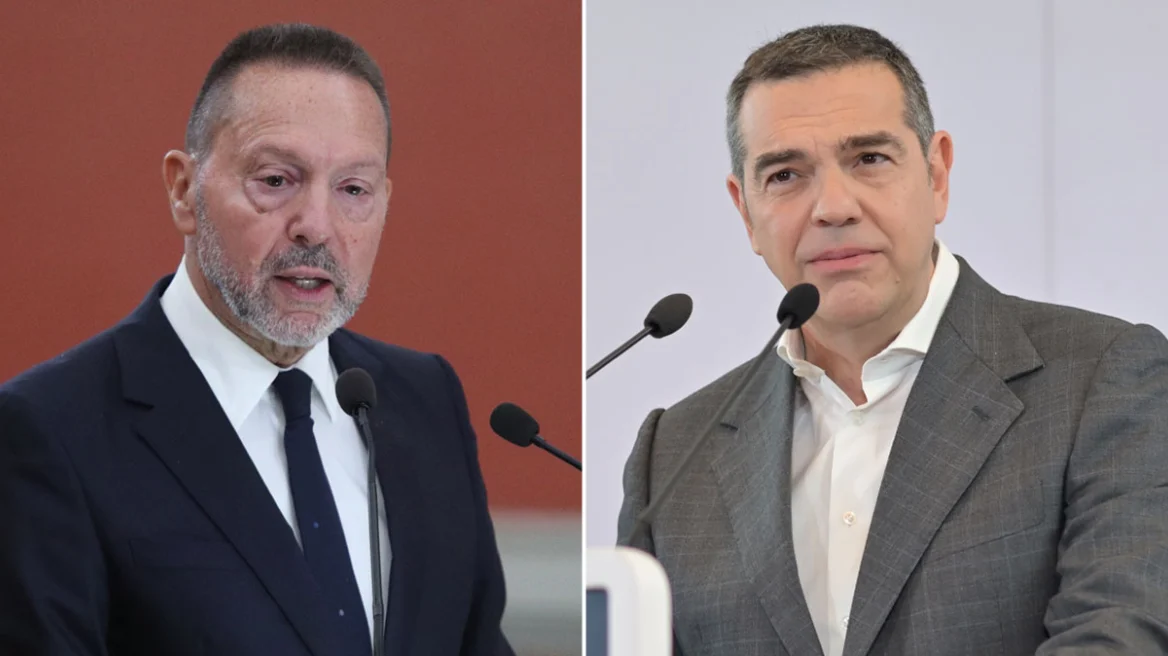Six significant interventions that concern the majority of employees and pensioners and have a direct impact on enhancing their income will begin to be implemented gradually from the end of this year.
Employees who are paid the minimum wage in both the private and public sectors will see increases in their salaries and higher net income, as from 1/1/2025, social security contributions will be reduced by one percentage point.
Pensioners will see increases in their pensions at the end of the year, while additionally, pensioners receiving pensions over 1400 euros will see relief from the solidarity contribution withholding.
On the other hand, self-employed individuals will face an increase in their contributions from 1/1/2025.
Specifically, the 6 changes are as follows:
- Increase in the minimum wage in the private sector: Starting in January, the process to determine the new minimum wage will begin, which will take effect from 1/4/2025. Economic experts are forecasting an increase of around 40 euros, so the minimum wage will rise to 870 euros from the current 830 euros.
- Increase for newly appointed employees in the public sector: The salary for new employees in the public sector will increase in line with the private sector minimum wage from 1/1/2026. However, for 2025, the increase will be paid to eligible employees, reduced by the existing difference as of 31/12/2024 between the base salary in the public and private sectors. Currently, the base salary in the public sector is 20 euros higher than in the private sector, at 850 euros. If the minimum wage increases by 40 euros in 2025, to 870 euros from 830 euros, new public sector employees will receive the 20 euros to match the private sector minimum wage, and from 2026 the equal increase will begin.
- Reduction in social security contributions: From 1/1/2025, the social security contributions of employees to EFKA will decrease by 0.5%, and the employer’s contributions will also be reduced by the same amount. As a result, total contributions will drop to 35.16%, from the current 36.16%. Specifically, the employee contribution will be 13.37%, and the employer contribution will be 21.79%. This reduction will come from the healthcare package and will not affect the contributory rates for primary and supplementary pensions. Currently, healthcare contributions are 2.55% for employees and 4.55% for employers, totaling 7.10%. A reduction of one unit means the total healthcare contribution will reach 6.10%. The reduction will be shared equally between the employee and employer. In this case, the employee’s healthcare contribution will be 2.05%, and the employer’s will be 4.05%.
- This means an employee with a gross salary of 1,000 euros currently pays a total of 71 euros in healthcare contributions (employee and employer). This amount will decrease to 61 euros, saving 120 euros annually, equally split between the employer and employee.
- This means the net benefit for the employee will be 5 euros per month, or 60 euros per year in higher net salary.
- Similarly, the net benefit for the employer will be 5 euros per month, or 60 euros per year, from reduced employer costs. The higher the salary, the greater the benefit.
Changes in the Solidarity Contribution for Pensioners (EAS): The amendment that corrects the distortions in the solidarity contribution is expected to be voted on in November, so that it can be applied to the pensions of January 2025, which will be paid at the end of December. The new architecture of the Solidarity Contribution for Pensioners provides that as the pension increases each year, the threshold for each contribution tier will also increase, ensuring that no one experiences a decrease in their pension and that they will fully benefit from the increase. It is worth noting that until now, the withholding of the EAS often resulted in the nullification of pension increases or even a reduction in pensions for those receiving pensions over 1,400 euros, who were at the threshold of the contribution tiers. With this change, the beneficiaries (estimated to be 12,000 people) will receive the full 2.4% increase for 2025, and no one will change contribution tiers, preventing higher withholding. This solution was deemed preferable because it is fiscally neutral.
Increase in contributions for self-employed individuals: There is uncertainty about how the increases for self-employed individuals will be calculated from 1/1/2025, as they are adjusted annually according to the inflation rate. However, it is possible that in 2025, a new wage change index will be used, which is expected to be delivered by ELSTAT to the Deputy Minister of Labor, Panos Tsakloglou, in December. If the wage index is high, it will increase the social security contributions of self-employed individuals, freelancers, and farmers, which have been rising annually according to inflation so far. Under the current system, the lowest contribution category for self-employed individuals is 238.22 euros per month. With the annual inflation expected to be 2.8%, this will increase to 244.8 euros in January 2025. Under the new system, assuming the wage index will be between 4% and 5%, the lowest contribution will range from 247.7 euros to 250 euros. Freelancers raise valid concerns as the contributions for the years 2023–2024 increased by over 13%, and if another 5% increase is added, there will be a total increase of more than 18% over the last three years. Additionally, they have already been burdened with taxes on the minimum notional income.
Pension increases: The final increase will be officially announced in November with the budget and will be credited to pensions in January, to be paid at the end of December. If the information from the economic team is confirmed, the 2.4% increase will raise the average pension of 816 euros to 835.5 euros (+20 euros), and the national pension from 426.17 euros to 436.3 euros. In general, lower pensions of 500–600 euros will increase by up to 15 euros per month. Medium pensions of 1,000–1,500 euros will increase on average by 30 euros per month, while higher pensions, from 2,000 to 3,000 euros, will increase by 50 to 75 euros per month. According to experts, the annual increases of 2.4% in 2025 will fall short of the expected annual inflation rate, which is estimated at 2.8%–2.9%. This means that pensioners will not see a real increase in their pocket, as inflation and high prices will erode their purchasing power.
Ask me anything
Explore related questions





